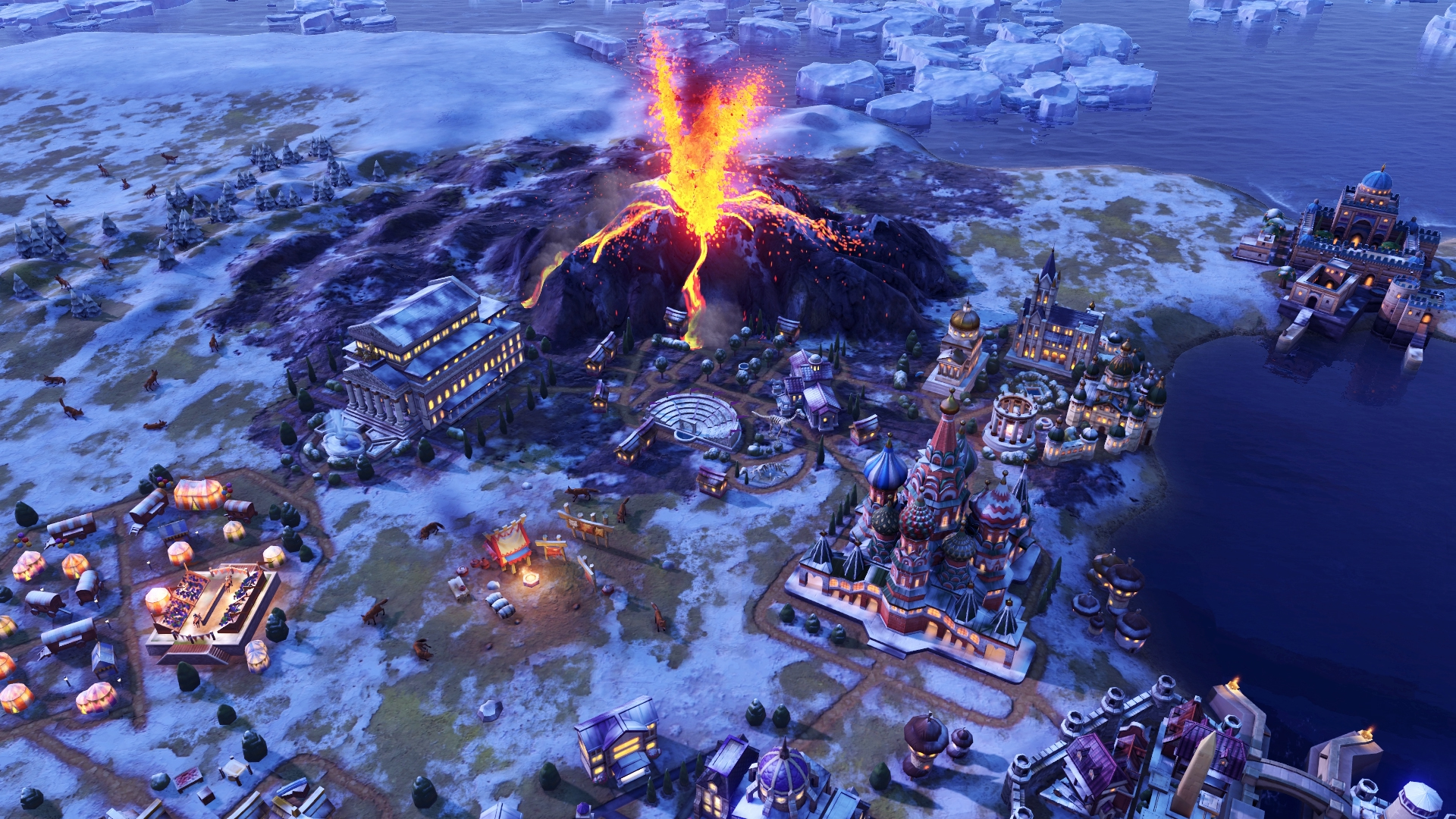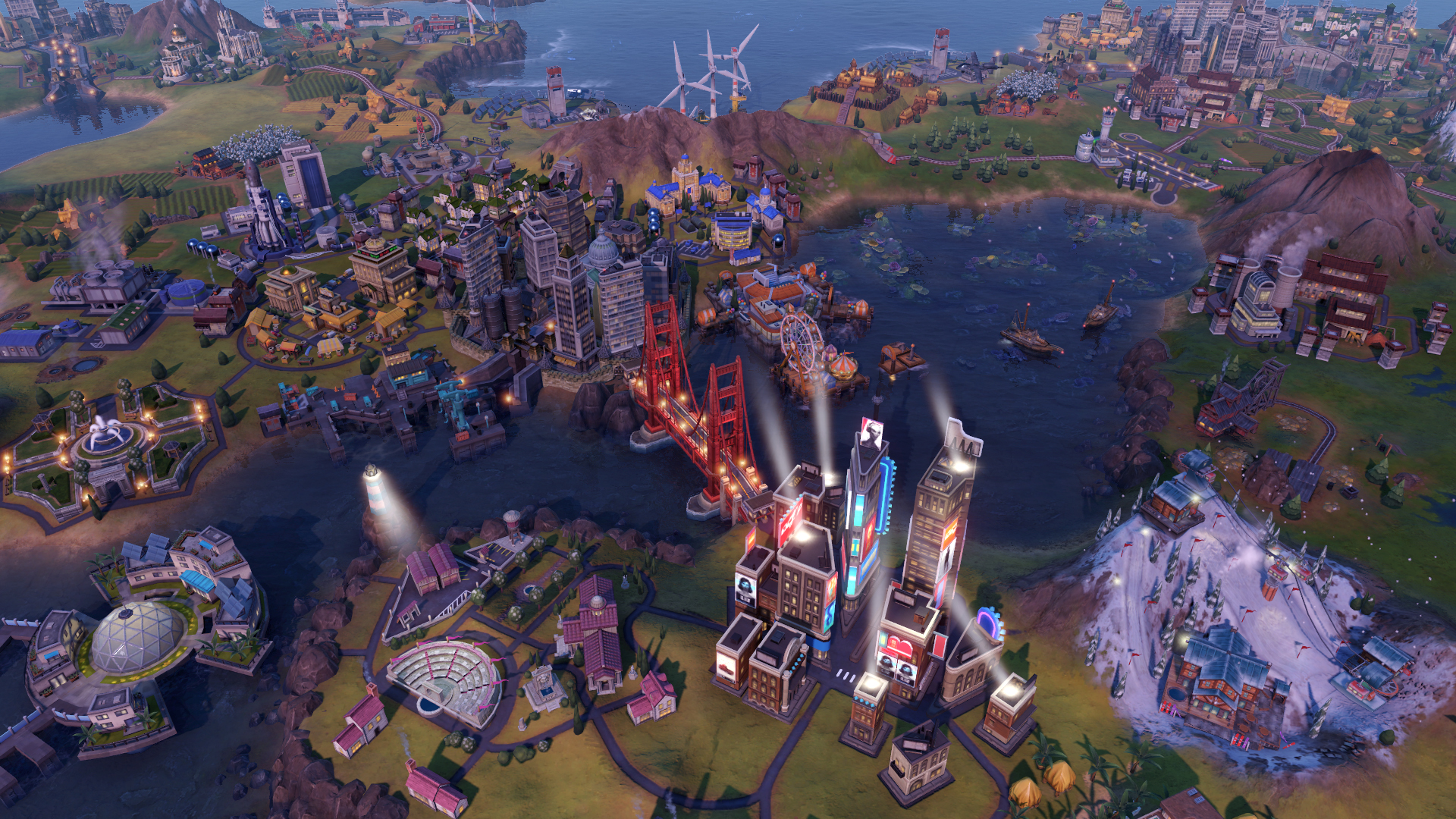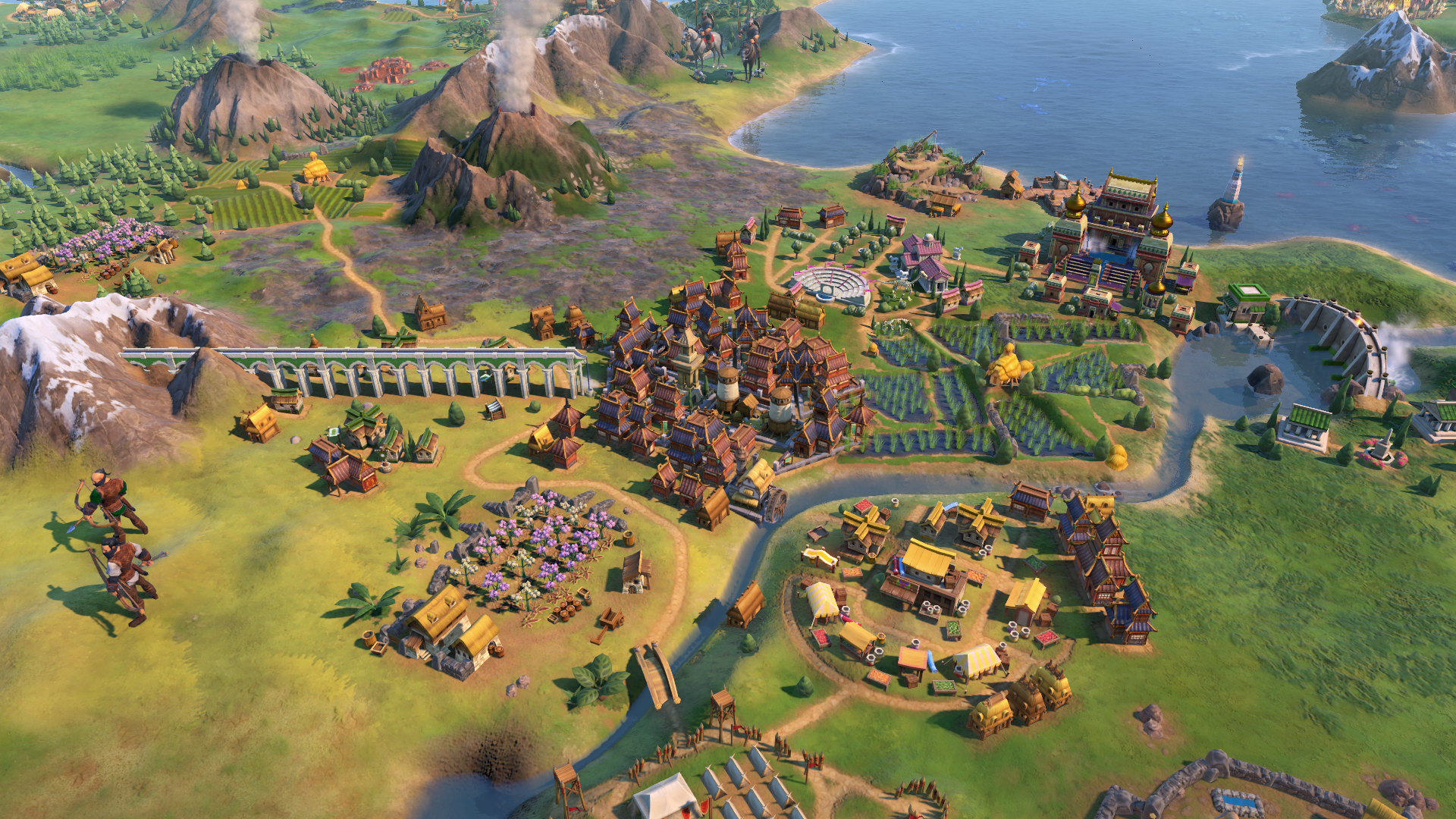“…the biggest and boldest new step that the franchise has ever taken.”
Gathering Storm is the second major expansion to Sid Meier’s Civilization VI. The 4X strategy game is, arguably, the best that it has ever been, and this newest expansion is, again arguably, the biggest and boldest new step that the franchise has ever taken. Moving its focus away from global warfare, reaching other planets and the collection of cultural luxuries, Gathering Storm signposts the growing maturity of Civ VI into a game which recognises the bigger picture…
As the Civilization franchise has matured, so has our real-world society. Today’s biggest threats rarely come from barbarian hordes, but instead from the world around us. The way that we have settled and treated our natural environment is beginning to have very profound effects for our ongoing existence as a species. Gathering Storm recognises these modern-day threats, and expertly transitions them into deep, exciting and significant game mechanics.

The environment is a player in itself in Gathering Storm. In the early game, this manifests as natural landforms and weather effects, such as volcanoes, storms, floods, droughts or hurricanes, each with varying levels of threat and potential for destruction. What I like about these environmental threats, as a teacher of Geography myself, is that the game also recognises the positive impacts which each can leave behind. A volcanic eruption, for example, can be devastating in the moment, but leaves behind fertile land with distinct benefits to your civilisation in its wake. They also offer a new opportunity for national parks; a significant player in the culture victory which previously relied on having natural wonders within your borders. The disaster elements of the game are by no means perfect; indeed, the volcanic eruptions are much less catastrophic than what I had hoped to see, given what we know about their impacts in the real-world. Nevertheless, it is something, and it goes beyond the simplicity of “oh no, lava!” that you often see in the movies.

Into the mid-to-late game, as you civilisation and its means of existence evolve, you are expected by both the game and the world to take some responsibility for your actions. Burning consumable resources like oil or coal will have an impact of the atmosphere of the entire world around you. Persistence in these practices will eventually lead to distinct and damaging climate change, sometimes of irreversible proportions. From a natural perspective, this will see threats such as rising sea levels effect your coastal cities, for example. From a political viewpoint, your neighbouring civilisations might find it in their interest to put a stop to your activities for the greater good. Ironically, computer-controlled civilisations will realise early on that your coal-burning antics pose a threat, and thus the pressure is on thick and fast if you are the first player to meet such milestones. If only we had the same foresight as these artificial intelligences, we might have seen the world in a better state today.

Pleasing your neighbours is now more important than in the base game or the first expansion, too. Not only is there more for them to be upset about, but there are also plentiful rewards to be claimed for being a good world leader. The return of a diplomatic victory condition is the ultimate trophy for your efforts. This can be earned by performing outstanding deeds in the interests of other players or building certain wonders such as the Statue of Liberty, which represents the freedom of the peoples of the world. The diplomatic victory is facilitated by the introduction of a World Congress, which provides a flurry of new activities and modifiers to gameplay. Events such as the World Games give an opportunity for friendly competition, as well as a chance to win diplomatic victory points. A civilisation hit by a natural disaster might call a special session, in order to request aid. Perhaps most importantly, however, regular sessions of the World Congress can set resolutions which either help or hinder other players in significant ways. This might be an inability to set up new trade routes, or a buff to constructing buildings in a set district for a short period. This is a friendlier talk-it-out mechanic than the simple routes of friendships and denunciations, and it makes the modern-era gameplay of Civ VI feel that little bit more legitimate. The only downside is that the game often ends before these systems have a real chance to mature.

Speaking of modern-era gameplay, new technologies and civics help to complete an already strong package of realistic ways to grow your civilisation. Perhaps most importantly, later-game sciences can help you to protect yourself and the world from the aforementioned natural threats. Dams and flood defences, for example can protect your people from getting wet, whilst clean energy solutions can help to avert the dangers of climate change altogether. What is interesting about this latter opportunity, however, is the way that you can manipulate it. For example, if you have an enemy with a number of coastal cities, perhaps a little rise in sea levels is not such a bad thing after all… It isn’t the message that Gathering Storm is trying to get across, but as a meta mechanic it makes for an interesting strategy. A series of new, purpose-built districts can offer larger benefits in protecting your people as well, and new wonders spice up the package nicely.
This is really just an overview of the beefy updates which Gathering Storm brings to Civilization VI. In reality, the expansion evolves the gameplay significantly and in a positive direction. Civ VI feels like a fuller package with Gathering Storm in place, albeit a more realistic one, too. There is more to do and more to focus on, but none of this feel overwhelming; naturally the outstanding Civopedia and in-game teacher are on-hand to help you where you need it. If you know that you will get plenty of game time out of Gathering Storm and can justify the £35 price tag, the mechanics of this expansion entirely make it worth your while.
Should you still need a little more convincing of Gathering Storm’s value to your Civilization experience, check out Part 2 of this review where I dive into the new civs and scenarios which the latest expansion has to offer!








You must be logged in to post a comment.